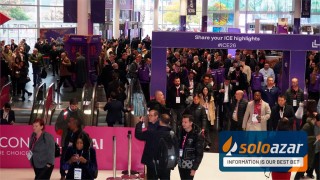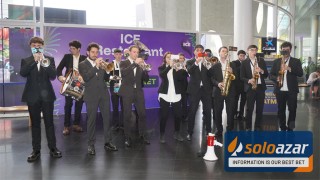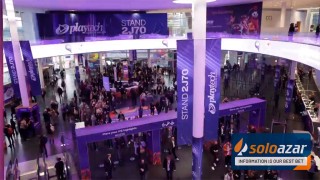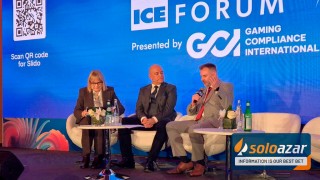Minnesota’s hopes for legal sports betting dashed after tumultuous legislative session
Wednesday 22 de May 2024 / 12:00
2 minutos de lectura
(Minnesota).- All Minnesota sports betting stakeholders finally came together on an agreement to expand gaming in the North Star State. The votes were there in each chamber to easily pass the legislation. Yet, another Minnesota legislative session came and went without the state legalizing sports wagering.
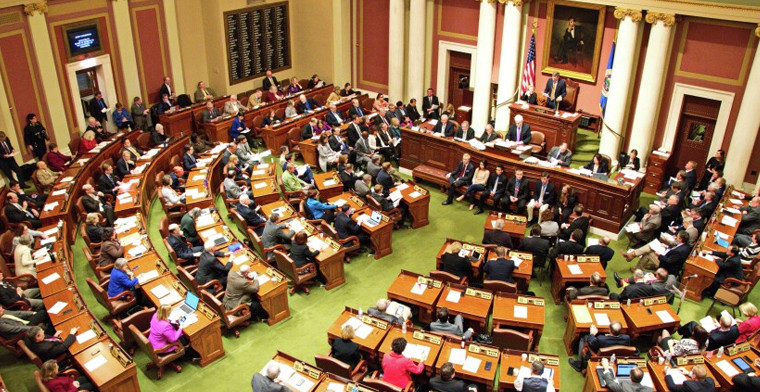
PlayUSA spoke with representatives of Minnesota Indian tribes, horse racetracks, charities and the legislature to find out what went wrong for Minnesota sports betting legislation when everything went right. Ultimately, poor clock management and partisan rancor wasted an impressive solution worked out to address all stakeholder needs.
Details of Minnesota sports betting deal
The past two years, Minnesota tribes and tracks seemed close to reaching a compromise for tracks to accept tribal exclusivity of online sports betting.
But disagreement among Minnesota’s 11 tribes prevented the Minnesota Indian Gaming Association from finalizing a deal with tracks at the end of each session.
That wasn’t the case this year. Minnesota tribes, tracks, charities, sports teams, and national sportsbook operators all supported bill passage. No stakeholder opposed the final legislation.
Multiple parties confirmed the deal, which centered on twin revenue sharing arrangements to gain the support of smaller tribes and tracks.
- Funded with 15% of online sports betting tax revenue, a tribal equalization account guaranteed every Minnesota tribe a minimum revenue by supplementing tribes that opted not to participate or partnered with a platform provider with a low market share.
- Minnesota tracks also got 15% of online sports betting tax revenue uncapped. For the first $12.5 million annually, Canterbury Park (with greater racing expenses) split 60-40 with Running Aces. Any additional revenue share disbursement would revert to the 72-28 advanced deposit wagering split currently in use. The tracks could put the revenue share toward all racing expenses, not just purses.
Additionally, the legislation increased the tax rate from 20% to 22% to raise revenue share.
Tracks would have received much more than ever before
Rep. Zack Stephenson’s HF5274 included $625,000 to the tracks.
Based on previous revenue projections of $40 million ($44 million with the increased tax rate), tracks would have gotten more than 10 times what was in Stephenson’s bill previously.
Many of the stakeholders are optimistic that revenue could reach twice as much. Running Aces CEO Taro Ito had told PlayUSA the track wanted $5 million in revenue share for its take. The track could have reached that figure with a 40% split of $12.5 million, if revenue share reached that high.
The revenue share for smaller tribes was key to getting full tribal buy-in on the revenue share for tracks.
“One of the big issues was always that some of the smaller tribes were not happy that racetracks could potentially make more money than them,” Ito said. “I think that has always been a thorn. They were able to resolve that through some creating financing, and I think that was the breakthrough that led to continuing the discussion with the tracks.”
Ito said Running Aces would have been neutral if the bill came to a vote. After filing a lawsuit on tribal exclusivity for slots, the track couldn’t endorse a bill giving tribes sports betting exclusivity. Ito added that Running Aces did not agree to drop the lawsuit as part of the sports betting deal.
The deal did include a ban on historic horse racing, which ended up passing anyway as a standalone bill, SF2219.
Canterbury Park CEO Randy Sampson said in a statement: “We are disappointed that the only gaming bill that passed this year will prevent our racetracks from increasing purses by using Historical Horse Racing. We believe this proposal deserves a much closer look than it was given by the legislators. However, we are encouraged that a number of legislators worked hard for the past several weeks to expand the benefits of the sports betting bill so racetracks, tribal casinos and charities could all support a final package. Although the bill did not pass, we will continue to work with legislators and the Minnesota Racing Commission to find ways to enhance purses and strengthen Minnesota’s horse racing industry.”
Legislators let down sports betting proponents
As tribes and tracks negotiated the past three years, the assumption was that once they reached a deal, Republicans backing the tracks in the Senate would provide the votes needed to pass the bill.
Turns out it wasn’t that simple. There is bipartisan opposition to sports betting in both chambers of the Minnesota legislature. As a result, passage requires bipartisan support.
Majority party Democratic-Labor-Farmer (DFL) was trying to push through its agenda as the session ended. Republicans drew a line in the sand that they would not cooperate to help pass any bills needing their support if the DFL was not cooperating with them. That left any legislation needing bipartisan support out to dry, including sports betting.
“I think sports betting got swallowed up by events way beyond sports betting,” Ito said. “It fell victim to bigger things.”
Hostility between DFL and Republicans in Minnesota this session went beyond the typical partisan divide. This started when Sen. Nicole Mitchell was arrested for felony burglary in a family-related issue about a month ago. The DFL took control of the Senate by a single seat in the 2022 election. Republicans wanted her disqualified from voting on bills. When that failed, they wouldn’t support any bills that the DFL could only pass because of her vote.
Republican Rep. Pat Garofalo told PlayUSA: “I think we were really close on sports gambling. I 100% believe if Sen. Mitchell had not been arrested for burglary that they would have passed it this year. When the DFL started relying on Sen. Mitchell’s vote to pass things, it was just like a turd in a punch bowl that blew up a lot of things that needed bipartisan support, and sports gambling was one of those things.”
Chaotic final days Of Minnesota legislative session
Stakeholders had a deal in place by Wednesday and hoped the House would pass Minnesota sports betting Friday night.
They needed 68 votes to pass the bill and had 67 DFL votes, meaning they needed one Republican. If Republicans were free to vote their mind, stakeholders counted 80-to-85 votes in the House.
Garofalo, a longtime sports betting champion, said he still had two hangups on the bill. He was concerned about whether sportsbooks at tribal casinos would have a 21-minimum-age requirement and whether sports gambling through tribal compacts ever expired.
He never had the chance to vote for the bill on the floor. But even if he had, Garofalo insists the Senate wouldn’t have called it for a vote.
Sampson agreed, telling PlayUSA: “It appears that even if it had passed the House on Friday night as was planned, the meltdown at the end would most likely have prevented it from getting done.”
Sen. Jeremy Miller worked hard to get Republican support for sports betting in the Senate. But the Senate prioritized other issues.
In the final days of the Minnesota legislature, nothing was getting done until the DFL loaded up an omnibus tax bill with language from eight bills and rammed it through late Sunday night against vocal Republican objections.
Sports betting couldn’t hitch a ride on the omnibus tax bill. The legislation needed to pass solely on DFL support, which it couldn’t do with sports betting. “If they had the votes, they would have put it in that tax bill,” Ito said. “They just knew they didn’t have the votes.”
Rachel Jenner, executive director of Allied Charities of Minnesota, told PlayUSA that the mistake of tribes and tracks was not reaching a deal before partisan divide made passage difficult. “I think not doing enough for racetracks earlier in session really hurt the bill’s trajectory. When they came up with the remedy in the 11th hour, it was too late to get it passed. They really needed to get something done and passed earlier in the process to avoid that last-minute craziness, which this year was even more chaotic than previous years.”
Charities lose as result of legislative inaction
Last year, the big tax bill passed by Minnesota lawmakers at the end of the session included a change to how charities are able to offer electronic pull tabs.
Those charitable gaming changes go into effect on Jan. 1 and could reduce revenue for Minnesota charities.
Even before those changes, charities had complained about a high tax rate taking away from their community efforts. The charities finally thought they had a workable solution in place when they negotiated with Stephenson to add to the sports betting bill charitable gaming tax cuts that could amount to $40 million.
“Unfortunately, I feel like this was our year,” Jenner said. “On the heels of the legislation passed last year, legislators were very willing to bring us to table and negotiate a deal. This was historic in terms of the amount of tax relief offered, so I really feel this was our year to get it done and am very disappointed that didn’t happen.”
Much of the session, it seemed like legislators were working in a bipartisan effort to help out the charities. Three weeks ago, House Republicans tried to turn the sports betting legislation into a standalone charitable gaming tax cut bill. But that wasn’t enough to get Republican support in the end.
“I think up until a couple weeks before end of session, we really felt there was a lot of support on both sides of the aisle. Sen. Miller had kind of spearheaded this is Senate. We had Rep. Garofalo working alongside Rep. Stephenson in the House. We really felt the legislators were all committed and understood the importance, especially this year because of the changes to e-tabs last session. That everyone was making it a priority. So I was surprised this weekend when everything fell apart and the wheels came off.”
Jenner said charities will now have to see what the e-pull tab changes do to revenue next year. Projections range greatly from a 5% impact to 50%. It depends on how Minnesotans embrace the new games, which will be simpler. E-pull tabs now must be opened individually rather than all at once, and no bonus plays or extended screens are allowed beyond the initial reveal.
“It’s hard to know until we roll out the games and gauge the public perception of them,” Jenner said. “Manufacturers are doing their best to put out games that are entertaining, and hopefully people will continue to play to help local charities. We really wanted to get this tax relief in place as we rebuild the e-tab industry. It’s very unfortunate that we’ll have to do that without any significant tax relief.”
Special session possible but not likely
With the issues left undone as a result of end-of-session difficulties, it’s possible that cooler heads prevail and the governor calls a special session to complete the remaining issues, including sports betting.
That is the hope of Garofalo, who is retiring after 20 years in office and would like one last chance to pass sports betting before he leaves. “There’s always a possibility if we were going to continue to negotiate and talk through things that we could have a special session for sports gambling. That’s still possible. This is a bill that Minnesotans want. It helps the charities, helps the racetracks, would help tribal entities. We’ll see what happens.”
Stakeholders also would like to see a special session to pass sports betting.
“We would love for the governor to call a special session and try to get things done,” Jenner said. “I think our bill was not the only one that was close and if it had the opportunity to be heard would have passed. It would benefit us if they could come together once things settle down and get this stuff done.”
However, Jenner admits she isn’t optimistic. With it being an election year for all House members, the Minnesota political divide is likely to continue. And the DFL’s e-pull tab changes could be an issue Republicans use in their campaign. “I’m not sure anything is going to settle down. I think they’ll roll right into campaigning and there will be a lot of discussions about things that didn’t get done and why that happened. I’m sure there will promises made that things will be different if we elect different people. In the end, we need more bipartisan support for things that are good for our communities.”
Garofalo pointed out that the Senate isn’t on the ballot this year. And things couldn’t possibly get worse than how the session ended. “If just one group of people was impacted by this, that’s one thing. But with the charities, the tribes, the tracks and the public all interested in getting this done, that increases chances of addressing it in a special session.”
Optimism, uncertainty for Minnesota sports betting in 2025
In the session’s final hours, Stephenson tweeted: “We’re going to come up just short on the sports betting bill this year. But in the last few days we proved that we could find a deal that all the major stakeholders could live with. Tribes, tracks, charities… That’s meaningful progress that can be a foundation for the future.”
Ito doesn’t buy it. “He needs to get re-elected first. He’s making a pretty big assumption. I think he’s trying to cover himself with charities. He needed that so badly and didn’t get it, so he’s trying to find a way to spin it. That he was close to getting a deal and blah blah blah.”
Ito’s skepticism is understandable. PlayUSA gave Minnesota an 85% chance to legalize sports betting this year because stakeholders were so close on a deal at the end of last session. Then tribes opened this year with a worse offer to tracks. "For three years, we were very close to making a deal and then you would think that would be the starting point or at least the floor. But then we start the next session and get bills going four steps back like Zack Stephenson’s bill this year. So, for me, there’s no deal moving forward. I think that’s history. Next year is a whole new year and Zack set the precedent that last year has no impact on future negotiations.”
But really it’s the uncertainty in the Minnesota legislature that makes next year hard to predict.
The DFL will be fighting to hold its six-seat advantage in the House this November. Although the Senate is not up for re-election, what happens with Mitchell could take away the DFL advantage.
Although they finally seemed to have a good solution, a change in leadership could lead some stakeholders to seek more.
Garofalo offered bipartisan agreement with Stephenson, saying a lot of work was done this year that makes Minnesota sports betting passage more likely next year. “Just because I’m not in the legislature next year doesn’t mean I won’t be trying to educate my colleagues on why we should do this. But it would be better for us to do it in a special session so we can get sports gambling up and running for the NFL season.”
Categoría:Legislation
Tags: Sin tags
País: United States
Región: North America
Event
ICE Barcelona 2026
19 de January 2026
R. Franco Strengthens Its Global Positioning Following a Strong Presence at ICE Barcelona 2026
(Barcelona, SoloAzar Exclusive).- R. Franco Digital's participation at ICE Barcelona 2026 delivered a highly positive outcome for the company, which leveraged the event to consolidate its international presence, showcase its latest innovations for both land-based and online segments, and generate key business opportunities across Europe and Latin America.
Wednesday 11 Feb 2026 / 12:00
Kambi Highlights Strong Demand for Flexible and Compliant Sportsbook Solutions at ICE Barcelona 2026
(Barcelona, SoloAzar Exclusive).- Kambi, the leading global sports betting supplier, closed its participation at ICE Barcelona 2026 with a highly positive balance, marked by strong commercial exposure and high-level business discussions that underscored the growing demand for compliant, scalable and flexible sportsbook technology in regulated markets worldwide.
Wednesday 11 Feb 2026 / 12:00
Giorgio Dolce from Uplatform: "Our participation in ICE Barcelona 2026 was fantastic"
(Barcelona, SoloAzar Exclusive).- Giorgio Dolce, Sales Manager at Uplatfrom , reflects on a highly successful ICE Barcelona 2026, highlighting the impact of the company’s distinctive booth, the strong interest in its turnkey platform and sportsbook, emerging trends such as LatAm regulation and crypto casinos, and the firm’s strategic priorities for 2026.
Tuesday 10 Feb 2026 / 12:00
SUSCRIBIRSE
Para suscribirse a nuestro newsletter, complete sus datos
Reciba todo el contenido más reciente en su correo electrónico varias veces al mes.














